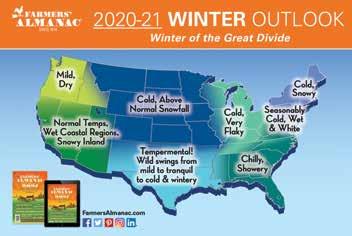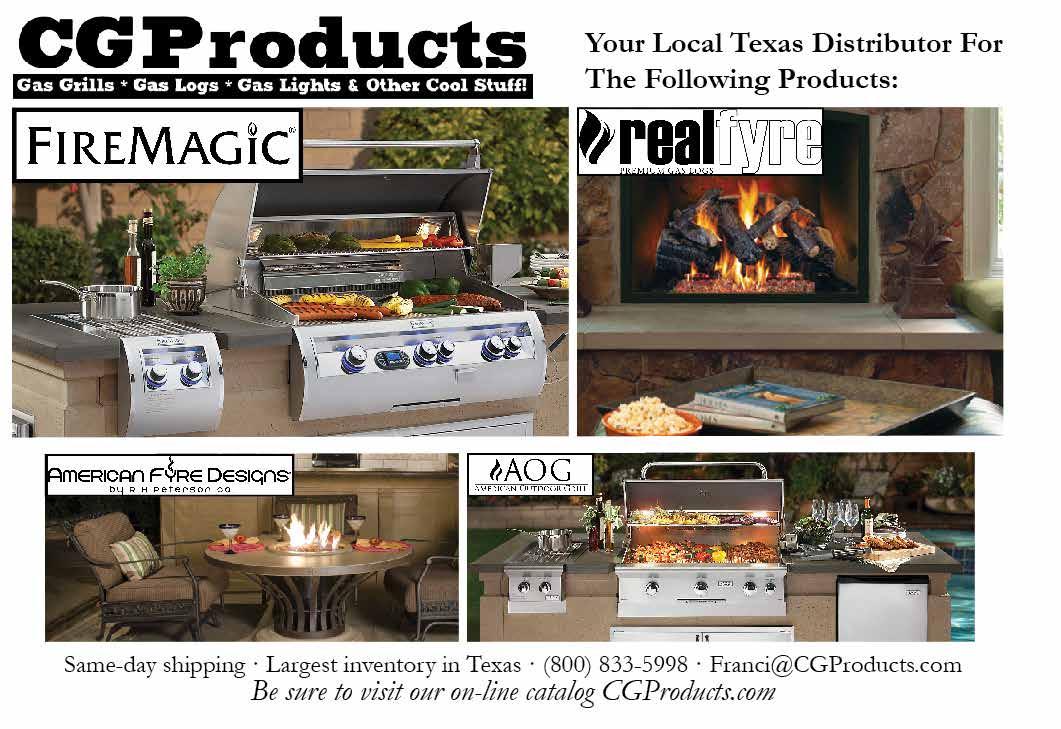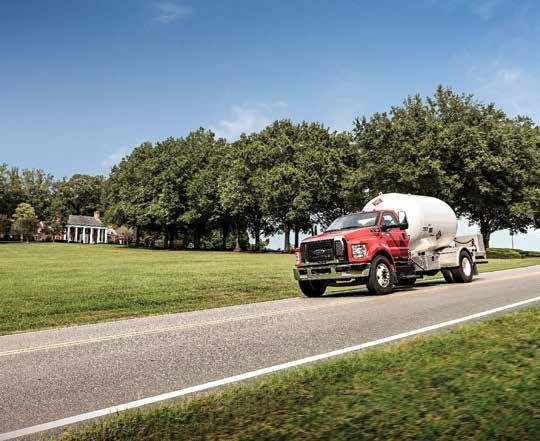
13 minute read
What the Transfer of Motor Fuel to TDLR means for LPG?
Tell us a little basic information about the TDLR. For instance, what is the agency’s charge and how many other business sectors does TDLR regulate?
The Texas Department of Licensing and Regulation (TDLR) licenses and regulates 39 different occupations and more than 1 million licensees. We are a small agency with big responsibilities. In carrying out our mission, we rely on our innovative, hard-working and down-to-earth staff to protect the health and safety of all Texans and ensure they are served by qualified and competent professionals. We believe in providing consistent, predictable, common-sense guidance to our customers at all times. Our philosophy is that smaller, smarter government—which is efficient, innovative, and minimizes interference with the business affairs of licensees—best serves the citizens of Texas.
Advertisement
Tell us a little about you. What has been your journey to TDLR?
After my father retired from the Air Force, we landed in my parents’ hometown of Giddings. Small-town life probably shaped me more than anything. I know what respect, hard work and kindness look like. I saw that first-hand with my mom and dad. I earned a Bachelor of Business Administration from Southwest Texas State University with a major in General Business and a Master of Business Administration from St. Edward’s University with a concentration in Financial Management.
I became the Executive Director of the Texas Department of Licensing and Regulation on September 1, 2016 and had been Deputy Executive Director of the agency since October 18, 1999. Before joining TDLR, I was the Assistant Administrator of the Texas Real Estate Commission and a Senior Securities Analyst at the State Securities Board. I started my public service at the Texas Savings and Loan Department.
Regulating Motor Fuel Metering & Quality is a recent development. Tell us about the transition from the Texas Department of Agriculture (TDA) to the Texas Department of Licensing & Regulation (TDLR) regarding regulatory authority for “motor fuel.” What will this regulation look like for gasoline and diesel gas stations? vs. propane providers. What will propane providers be required to do if they sell propane as an on-road motor fuel?
Senate Bill 2119 (86R) transferred oversight of Motor Fuel Metering and Quality from the Texas Department of Agriculture (TDA) to TDLR.
TDLR has granted an initial 6-month extension of the registration expiration date for currently registered motor fuel devices with accounts that expired on or after August 1, 2020. When the new registration is due, facilities will register their motor fuel devices per type and flow rates. Facilities must have a 2-year Device Performance Review (DPR) to register or renew (this was previously known as calibration). The DPR must be performed by a service company and technician licensed by TDLR.
Starting in 2021, facilities will be issued a 2-year registration for motor fuel devices. Fuel Quality fees are included in the 2-year registration fees as indicated per device type.
Facilities and Service Companies are required to report skimmer(s) found at a facility within 24 hours of discovery using TDLR’s online Skimmer Complaint form (https://www.tdlr. texas.gov/skimmers). Merchants are also required to report to the local law enforcement immediately.
Service Companies are licensed with TDLR by device category and will have 2-year licenses. All controlling persons of the service company must undergo a criminal history background check. The company must have liability insurance and maintain a certificate of calibration for each test standard per device category.
Service Technicians, who perform Device Performance Reviews, will be licensed for 2 years and must undergo a criminal history background check. Technicians must pay a $30 fee, and are not required to take exams for renewal; technicians are only required to take an exam if they are a new applicant or are seeking to add a new device.
Currently, all LPG meters and scales, regardless of use, are still required to register with the Texas Department of Agriculture (TDA) since it is extremely rare for a meter to have a dedicated use just for on-road propane motor fuel unless it is a private stations like school district refueling their own buses. A majority of fuel pumped from these devices is for residential and commercial businesses. Only 1.6% of odorized propane sales in Texas is attributed to “on-road” motor fuel. That said. If the propane retailer registered that device with the TDA, do they also have to register that same device again with TDLR, or is that device exempt from TDLR oversight since it is already registered with the TDA and subject to registration, inspection, and calibration?
Facilities operating devices that deliver LPG for use as a motor fuel must register with TDLR. Facilities operating motor fuel devices will register by device type with associated fee and will be issued a 2-year registration. Beginning in September 2021, LPG devices will need to have a 2-year Device Performance Review to register or renew.
I understand there is a 6-month waiver to register with TDLR; if current TDA registration expires on or after August 1, 2020, can you tell our readers more about that?
TDLR will be sending out a certification letter to all LPG fa-
cilities that have devices registered. The retailer must respond to notify TDLR whether they sell LPG as a motor fuel. It is important that the business responds, especially if they do not sell LPG as a motor fuel, they will be removed from the TDLR licensing database and they will not receive any further correspondence or renewal invoices. If the facility responds that they do sell LPG for motor fuel, or fails to respond, a renewal notice will be sent prior to the expiration of their registration.
Currently, all LPG meters are required and will still be required to have a TDA sticker. Will those same LPG meters also need to have a TDLR sticker? What is there is only room for one?
If a device is delivering LPG as motor fuel, it is required to have a TDLR consumer information sticker. If it is also used to deliver LPG for another use, it must have both the TDLR and TDA consumer information stickers. I know this is not ideal. Do the best you can with placement. We will exercise common sense.
With limited propane motor fuel sales in the state of Texas and not all marketers sell motor fuel. For those propane marketers that receive a notice from TDLR but do not sell motor fuel, what should they do? Is there a form they should complete to report they do not sell motor fuel?
TDLR will be sending out a certification letter to all LPG facilities that have devices registered. The retailer must respond to notify TDLR whether they sell LPG as a motor fuel. It is important that the business responds, especially if they do not sell LPG, and if they do not, they will be removed from the TDLR licensing database and they will not receive any further correspondence or renewal invoices. If the facility responds that they do sell LPG for motor fuel, or fails to respond, a renewal notice will be sent prior to the expiration of their registration.
Some propane marketers only federal taxable motor fuel use is fuel for their own vehicles. Since they sell the fuel, many marketers only motor fuel use is due to refueling their own vehicles. Will those propane providers have to register the device if the only motor fuel they use is for their own vehicles?
Devices used to deliver LPG for use by private companies in company-owned vehicles using company-owned equipment do not need to be registered. A propane marketer that delivers LPG in bulk must be registered with TDLR if metering measured amounts at retail.
Tell us more about the Motor Fuel Metering & Quality working group and how can the propane industry can get involved.
This workgroup is so important. They are made if of people who are in the motor fuel industry. The statewide workgroup provides input, advice and recommendations to TDLR to help with rules, criminal conviction guidelines and penalty amounts. You can find a list of workgroup members on the TDLR website (www.tdlr.texas.
September 21, 2020
LPG Company ADDRESS CITY

TDLR ID
RE: Liquid Petroleum Gas Registration
Dear Sir/Madam:
The Motor Fuel Metering and Quality(FMQ)Program was transferred to the Texas Department of Licensing and Regulation (TDLR) from the Texas Department of Agriculture (TDA) on September 1, 2020. Your company is listed as a facility that has at least one registered Liquid Petroleum Gas (LPG) device.
If your facility sells LPG for use as a motor fuel, your device(s) must also be registered with TDLR. If you do notsell LPG as a motor fuel, you are notrequired to register your device with TDLR.
For TDLR to determine whether you must continue to register with the Department and receive renewal invoices, you must answer the following question and return a copy of this letter. If you fail to respond,
your facility will receive a renewal invoice from TDLR when your current LPG device registration expires.
Do you sell liquid petroleum gas for use as motor fuel in highway vehicles?
YES ________ NO ________
Signature: Title:
First, Middle Name, Last, Suffix (Jr., Sr., III)
Printed Name: Date:
First, Middle Name, Last, Suffix (Jr., Sr., III)
Please return a copy of this letter within 30 days from receipt of this letter. You may send it by fax to (512) 463-5984 orvia secure email through our website: https://www.tdlr.texas.gov/help.
If you have questions about this notice, you can contact us by phone at (512) 463-6599 or (800) 803-9202, or email Tools.Team@tdlr.texas.gov.
For more information about the FMQ program and to sign up for updates, visit the program webpage: https://www.tdlr.texas.gov/fmq/fmq.htm.
Thank you, Licensing Division Motor Fuel Metering and Quality Texas Department of Licensing and Regulation
gov/fmq/fmqgroup.htm). Be sure to sign up for important notices relating to Motor Fuel Metering & Quality, especially meeting notices for the workgroup (https://public.govdelivery.com/accounts/ TXDLR/subscriber/new) . Meetings generally happen in Austin, but during the pandemic, they have been held via videoconference and carried live on TDLR’s YouTube channel. In “normal” times, visitors are encouraged to attend meetings in person.
Anything else you’d like to add to help propane providers during this new regulation?
TDLR is here to serve. We do not come in with an attitude that we have all the answers, but instead we believe in listening and learning. Our employees work hard every day to foster a predictable regulatory climate by minimizing government interference while ensuring the safety of all Texans. We will do our part to streamline regulation of propane providers when it’s possible and we will work even harder to earn your trust.
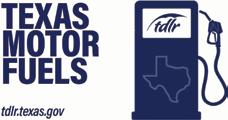
Questions? Texas Propane Gas Association (TPGA) members can call TPGA at (800)32-LPGAS for any regulatory and compliance questions whether it be on LPG meters and scales with the Texas Department of Agriculture or inquiries on motor fuel regulation with the TDLR.
Highlight Propane’s Clean Energy Attributes with PERC’s New Environmental Toolkit
Fight Electrification
One vision of a cleaner, more sustainable planet is pushing out all traditional fossil fuels. Nationwide, the National Propane Gas Association (NPGA) is already tracking more than 600 proposals at the state and local level to limit or outright ban the use of gas in favor of electricity. NPGA is seeing a lot of action in more liberal communities, especially college towns and more affluent suburbs, to either ban gas connections in new construction, or eliminate the possibility of gas in any sort of renovation.
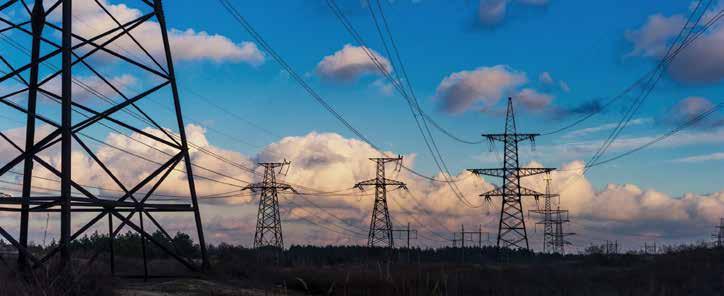
NPGA is part of a coalition with about a dozen other groups – including the American Gas Association, American Public Gas Association, Hearth, Patio and Barbecue Association, AARP, and others – to challenge these proposals on the state and local level.
Meanwhile, the debate rages over the benefits and shortcomings of wind, solar, biomass, nuclear and a dozen more sources to provide clean, affordable energy today, tomorrow and into the future.
Realistically, there is no single answer

BAM Propane is committed to servicing your propane needs with supply availability at all the major supply points across Texas. We market Polygrade Propylene, Refrigerant Grade Propane in addition to HD-5. Please contact us for more information:
Jeff Severson Marketing Manager (817) 738-8224 (Office) (817) 894-6126 (Mobile)
or energy source that will solve our complex challenges. But propane’s low-carbon, high-energy output produces significantly fewer greenhouse gas emissions than most competitors, including electricity. That means our time-proven fuel can help meet the world’s increasing energy needs while reducing carbon in our atmosphere. It can be part of the solution.
Yet propane is largely missing in the influential forums of scientific and academic discourse where our energy future gets evaluated. It’s often an afterthought among green policy makers at the state and local levels. And even loyal propane customers might be surprised to know the many environmental benefits their trusted fuel delivers.
It’s a shortcoming that needs to be bolstered across that wide spectrum of audiences.
“We have the science to prove that propane delivers climate-protecting power. We can make a strong case that meeting America’s growing energy demand and climate-protecting goals requires a smart balance of power solutions, and that propane has a vital role to play,” says Tina Wilson, PERC’s senior vice president of
communications. “We need to get that message out.”
Recent market research done for NPGA and PERC indicates consumers view propane in a more favorable light than other non-renewable energy types. But it also shows that electricity tends to have a stronger association with environmental benefits.
Those misperceptions need to be aggressively challenged, according to Wilson.
“Our industry members need to be able to defend propane as a viable solution within the communities they serve. They need to be able to have an informed discussion with concerned consumers who make energy choices in their homes and businesses,” Wilson says.
In this new world of electrification, fossil fuels are being demonized. The Propane Education & Research (PERC) has responded by creating a propane environmental toolkit and other resources to better equip the industry with the messages and resources that help us all tell that story better regardless of who we’re talking to. the Propane Education & Research Council has compiled this environmental messaging kit that includes marketing tools and communication resources emphasizing the environmental benefits of propane.
Some of the items you will find in this tool kit include:
Propane & The Environment Video
—A video showcasing propane’s positive impact on the environment and its role as a clean energy source for a variety of uses. This video can be used on your company website or shared on social media.
New Customizable Clean Energy
Door Hanger Available. PERC has produced another customizable door hanger that propane marketers can leave behind with their customers to reinforce the message that they’ve made the smart decision to use a clean energy for their home. This can be personalized with the driver’s signature and company information.
Customizable op-eds, letters to the
editor and guest columns for your local publication to share propane’s environmental benefits.
The toolkit also includes event resources like handouts.
Download these resources at https:// propane.com/resource-catalog and search “environment”
Propane Environment Public Page. You can also check PERC’s public facing page tackling environmental issues at https://propane.com/environment/. There, site visitors will find stories, fact sheets, myth busting and more.
NPGA Fight Electrification Tool Kit
In addition to PERC’s environmental resources, in 2020 the National Propane Gas Association has also introduced a tool kit to fight electrification that it has added to Member section of its website to assist members.
The toolkit includes a variety of tools you can use to combat the push towards electrification and/or local bans on the use of gas or installation of gas infrastructure including sample testimony, answers to questions you might get from local officials, and other helpful resources.
NPGA members can go to www.npga. org to view and download all materials.
MEMBER Disability Insurance • Farm & Ranch • Employee Benefits • Long Term Care Financial & Estate Planning • Home & Auto • Life Insurance

COME JOIN OUR WINNING TEAM


